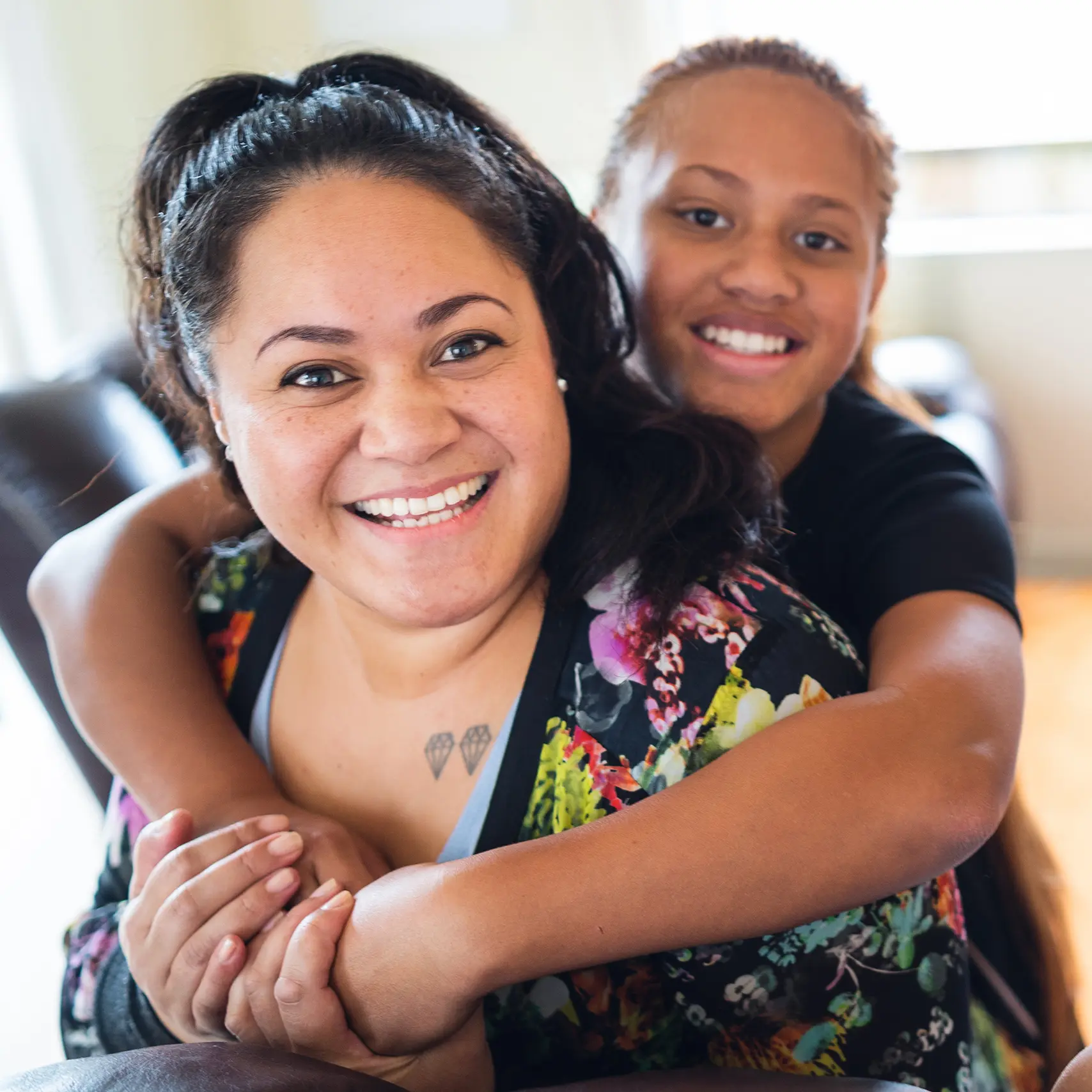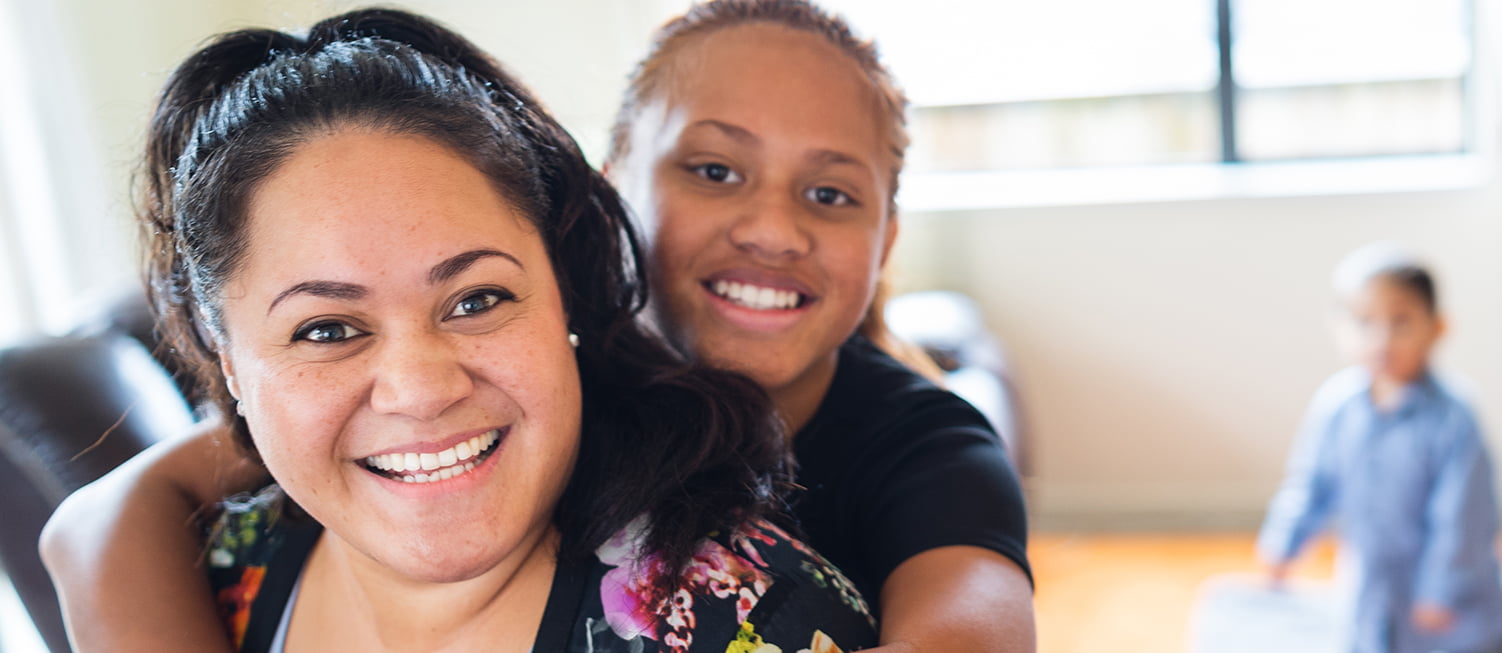What will the NDIS pay for?


The NDIS has developed a lists of supports that you can spend your NDIS funding on…and what you can’t. The new list of NDIS supports applies from 3 October 2024.
What the new list of supports includes
The new list of supports outlines:
- What you can spend your NDIS funding on (what IS an NDIS support)
- What you are not allowed to spend your NDIS funds on (what is NOT an NDIS support).
There will be a ‘transition period’ for the first year of the new NDIS Supports lists to ensure participants aren’t penalised for simple mistakes.
From 3 October 2024, the NDIS will only fund supports related to the impairments that led to your acceptance onto the scheme. For more information, see our dedicated page, NDIS Changes.
NDIS support funding criteria
A support can only be funded by the NDIS if it is related to your disability and meets all of the NDIS funding criteria:
- Helps with your individual goals and aspirations
- Helps your social and/or economic participation
- Is value for money, which means that:
- The cost of the support is similar to or cheaper than alternative options that can provide you with the same outcome and/or
- Purchasing the support is likely to reduce the costs of funding for other supports in the long term
- Is effective and beneficial for you
- It helps to maintain your informal supports
- It is the responsibility of the NDIS to fund
If you’re wondering, “what will the NDIS fund?” you’re in the right place! Jump to each section using the links below. Please note that this list is a guide only – for the full lists, see the NDIS website.
Daily personal activities
Development of daily care and life skills
Household tasks
Supports to help you participate in work and the community
Therapeutic and allied health supports
Assistive technology (AT)
Early intervention supports for early childhood
Personal mobility equipment
Home and vehicle modifications
Daily personal activities.
Supports that provide supervision or assistance with personal daily living tasks to help you live as independently as possible in your own home and participate in the community.
- Assistance with eating and drinking, dressing and toileting
- Maintaining personal hygiene, including showering, bathing, hair washing and drying, fingernail and toenail cutting and cleaning
- Moving and positioning
- In-kind personal care in school.
- Makeup, cosmetic treatments, cosmetics and cosmetic accessories
- Jewellery, watches (including smart watches)
- Standard (non-modified and non-adaptive) clothing and footwear
- Manicures, pedicures, false nails and other related services, hand or foot massage
- Hair treatments, cutting, dying, styling, extensions, threading, weaving, replacements, transplants and wigs
Development of daily care and life skills.
Supports that provide training and development activities for participants or carers to increase ability to live as independently as possible (including as part of psychosocial recovery supports).
Includes increasing your ability to independently undertake the following activities
- Shopping
- Meal preparation
- Managing finances
- Managing your own personal care
- Travel and use of public transport
- Engaging in social activities
- Improving relationships and social skills.
- Public transport fares and concessions
- Community transport services
Household tasks.
Supports that provide assistance with essential household tasks you are not able to do yourself because of disability.
- Meal preparation and delivery
- House or yard maintenance
- Cleaning and laundry.
- Groceries including all food, beverage, cleaning, household and health products
- Fast food services, takeaway food and food delivery platforms (excluding meal delivery platforms where the food and ingredient component can be separately identified from the meal preparation and delivery component).
Supports to help you participate in work and the community.
The NDIS may help you to get out and about in the community, learn new skills, get a job or help you at work. Some of these supports are funded by Core – Assistance with social and community participation, while others are funded by Capacity Building supports.
- Supports to access and participate in community, social, cultural and recreational activities provided in a group setting, in the community or in a centre
- Support during relevant activities and working with you to develop your ability to partake in these activities.
- Assistive equipment for recreation including personal and sporting equipment modification, equipment prescription and training, maintenance and spare parts
- Supports that build capacity to successfully prepare for, find or keep employment in the open labour market (including self-employment and micro-enterprise) or the supported labour market. This includes:
- Employment preparation complementary to that delivered while at school and when leaving school
- Assistance to transition to employment
- Further education and training.
- Specialised supported employment supports that assist you to prepare for, find and retain a job in the employment setting of choice.
- Supports that provide transport assistance if you cannot travel or use public transport independently.
- Standard (non-modified and not adaptive) recreational equipment and tools, including toys, balls and racquets
- Membership fees, venue hire, uniforms and footwear
- Costs associated with elite or professional sports and activities, including equipment
- Dating or relationship services
- Musical instruments, music production, social media production
- Tickets to theme parks, music, theatre, cinema, sporting events, and conference fees or entrance fees
- Accommodation to attend or participate in work, study, music, theatre, cinema, sporting events or conferences
- General health, fitness, social or recreational activity costs or services.
Therapeutic and allied health supports.
These supports can help you learn new skills, improve or maintain functional capacity in areas such as language and communication, personal care and mobility, become more independent or improve interpersonal interactions and community living. Therapies and allied health supports are funded from your Capacity Building budget.
- Assessment by health professionals for support planning and review as required
- Specialist allied health services that facilitate enhanced functioning and community re-integration of people with recently acquired severe conditions including newly acquired spinal cord and severe acquired brain injury
- Specialist audiological services provided by an allied health professional for participants with complex needs
- Personal training or exercise physiology to address the functional impact of the disability and increase physical mobility or well-being
- While the new list of NDIS Supports does not specifically state the following allied health supports, it is implied that the following evidence-based therapy will continue to be covered by the NDIS where it meets the NDIS funding criteria: psychology, physiotherapy, occupational therapy, speech therapy, Podiatry
- Supports that are provided by professionals with specialist skills in positive behaviour support (for people who have this specifically identified in their plan).
- Allied health services not related to your disability
- Diagnosis
- Seeing a doctor, dentist or specialist
- Hospital stays and surgery
- Alternative and complementary therapies including crystal therapy, tarot card reading, psychics, reflexology, yoga therapy, animal therapy (the NDIS considers these as not being evidence based)
- Massage that is not provided by an allied health professional for disability related purposes
- Life coaches, wellness coaches, career coaches, cultural coaches (not evidence based)
- Wellness, energy and healing services including hypnotherapy, gaming therapy, somatic therapy, reiki, spinal flow technique and kinesiology (not evidence based).
Assistive technology (AT).
Assistive technology covers devices or equipment that help you do everyday activities you wouldn’t otherwise be able to do, like eat, drink and move safely. It also covers more complex customised technology. Low cost AT under $1,500 can be flexibly purchased from your Core – Consumables budget. Complex and more expensive AT is funded by your Capital supports budget.
- Assistive products to support communication and information management including:
- Products that help you to receive, send, produce and/or process information
- Products that facilitate communicating by language, signs and symbols, receiving and producing messages, having conversations and using communication devices and techniques
- Services to assess and prescribe as well as help you learn how to use these products
- Related maintenance, spare parts and consumable items.
- Assistive products that support you to carry out domestic and everyday actions and tasks at home including:
- For the preparation of food and drink
- To facilitate house cleaning, gardening or laundry
- Additional costs to upgrade or modify standard household items to household items that include accessibility features that address your support needs
- Services to assess and prescribe as well as help you learn how to use these products
- Related maintenance, spare parts and consumable items.
- Assistive products for self-care activities and participation in self-care including:
- Modified foods including for the purposes of percutaneous endoscopic gastronomy (PEG) feeding
- Modified or adaptive clothing
- Modified or adaptive products to manage menstruation including applicators
Products to manage incontinence - Furniture and other products that are adapted or specifically made to be placed in or added to your home (including indoor and outdoor areas) to help with movement, positioning and other safety needs
- Visual and tactile alerting systems.
- Standard computers, standard computer accessories, consoles and games, and subscriptions for streaming services
- Internet devices (such as modems and routers), landline phones, mobile phones (including smart phones), accessories, tablets, and sim cards (see the section on Replacement lists)
- Internet, landline and mobile phone plans and data
- Smart watches (see the section on Replacement lists)
- Standard household items and appliances such as a dishwasher, fridge, washing machine, food processors and electric toothbrushes
- Rehabilitation supports
- General household furniture or appliances.
Early intervention supports for early childhood.
Evidence-based early childhood intervention supports for children 0-9 years (including children aged 0-6 with developmental delay) and their families to achieve better long-term outcomes for the child.
- Therapy provided by allied health professionals including speech pathologists and occupational therapists
- A key worker for a child’s family.
- Supports or therapies to support the general development needs of a child
Childcare fees, long day care and family day care - Transport for children as part of their reasonable care and support provided by families or carers
- Babysitting, nannying services or au pairs
Personal mobility equipment.
The provision of personal mobility equipment that supports or replaces a person’s capacity to move indoors and outdoors and to transfer from one place to another.
- Assistive products for walking
- Wheelchairs and motorised mobility devices
- Transfer devices and hoists
- Services to train a participant in successful use of equipment provided
- Maintenance, spare parts and consumable items specific to equipment provided.
- Supports or therapies to support the general development needs of a child
Childcare fees, long day care and family day care - Transport for children as part of their reasonable care and support provided by families or carers
- Babysitting, nannying services or au pairs
Home and vehicle modifications.
Obtaining funding for home and vehicle modifications can be complicated. An assessment by a qualified professional is usually required. Home or vehicle modifications require a quote and must be stated in your NDIS Plan in order for you to use your NDIS funding to purchase them.
- Supports that design, change or modify a participant’s home to help the participant live as independently as possible and to live safely at home including:
- Installing equipment or changing a building’s structure, fixture or fittings
- Internal and external building modifications to remedy damage arising exclusively from disability-related behaviours or use of NDIS funded assistive technology or equipment
- Regulatory certification requirements for works.
- Standard home repairs, home improvements, standard renovations and maintenance
- Electricity generators, solar panels, hot water and gas systems
- Design or modifications to state and territory owned residential facilities, public buildings, boarding schools and specialist disability accommodation
- Reasonable accessibility adjustments to social housing
- Standard furniture, fixtures or fittings such as beds, fire alarms and blinds.
- Assistive products that can be added to vehicles or modifications made to vehicles that help a participant to operate, enter, exit or ride in the vehicle safely.
- Passenger and wheelchair hoists
- Modified controls
- Modified restraints and modified car seats
- Certification costs for registration and additional vehicle insurance premium costs as a direct result of the modification
- Services to assess and prescribe as well as help you learn how to use these products
- Maintenance, spare parts and consumable items specific to an assistive product or modification.
- The purchase of a vehicle including motor vehicles, motorbikes, watercraft, all-terrain vehicles, standard bikes and scooters and other recreational vehicles
- Vehicles, devices, modifications or products that are not legal for use in the relevant state or territory
- Mechanical repairs (except for NDIS funded vehicle modifications)
- Vehicle registration
- Petrol, diesel and gas.
Other NDIS supports.
- Supports to help you manage your NDIS Plan, including support coordination and Plan management
- Specialist Disability Accommodation and Supported Independent Living
- Specialised driver training (if specifically identified in your NDIS plan)
- Assistance animals (if specifically identified in your NDIS plan)
- Assistance in coordinating or managing life stages, transitions and supports
- Specialist positive behaviour support (if specifically identified in your NDIS plan)
- Community nursing care for people with high care needs (not including high intensity daily personal activities), requiring a high level of clinical skill
- Customised prosthetics
- Disability related health supports (if specifically identified in your NDIS plan)
- High intensity daily personal activities
- Vision equipment and specialised hearing services.
This information is provided by Leap In! and is for general information purposes only and should not be taken as legal advice. Before claiming, it is important to consult the NDIS rules which are available on the NDIS website.
Other items that are not NDIS supports
- Rent or mortgage payments
- Standard household and garden items, appliances, tools and products
- Pools, pool heating and maintenance, spa baths, saunas, steam rooms
- Water, gas, and electricity bills, council rates, land taxes and levies
- Water filters, purifiers, or aerators
- Travel insurance, life insurance, income protection insurance, home and contents insurance, car insurance and excess insurance for novated vehicles
- Health insurance, ambulance membership, gap payments for Medicare funded services and private health insurance claims
- School, TAFE or university fees
- Internet devices (such as modems and routers), landline phones, mobile phones (including smart phones), mobile phone accessories, tablets, and sim cards
- Internet, landline and mobile phone plans and data
- Cruises, holiday packages, holiday accommodation and airfares, including interstate and overseas travel, passports, visa, activities and meals included in travel
- Animals (other than NDIS funded assistance animals) including includes pets and companion animals
- Diagnostic assessments and screening services
- Prescription and non-prescription medicines, sunscreens, weight loss products, vitamins
- Treatment, including for drug and alcohol dependency, gambling, and other addictions or disorders
- Supports related to mental health that are clinical in nature, including acute, ambulatory or continuing care or rehabilitation
- Rent, rental bonds, home and property deposits, mortgage repayments
- Standard home security and maintenance costs
- Sexual services
- Alcohol
- Drugs that contravene a Commonwealth, State or Territory law
- Cigarettes, vapes and smoking paraphernalia, legal cannabis and stop smoking devices
Replacement supports.
In specific circumstances, participants can request a replacement support for items that are generally considered not NDIS supports. There are two types of supports where this applies.
- Standard commercially available household items
There must be clear evidence that the need for the item relates specifically to the impairment that meets the disability or early intervention requirements. This item must increase whole task independence and reduce or eliminate the need for a support worker or disability specific assistive technology. - Smart watches, tablets, smartphones or an app used for accessibility or communication purposes.
This covers participants who require the use of a smart watch, tablet or smartphone required to meet communication and accessibility needs. For example, a person with complex communication needs who uses a tablet as an alternative communication device, which is their only way to communicate and so cannot be shared, where this is the most appropriate solution for their needs.
More details about how replacement supports will work are expected to be available soon.


Do you need help making sense of your NDIS Plan?
Call Leap in! to book your FREE Understand Your Plan Session with an expert plan manager.
- Get help you understand the funding in your NDIS plan
- Learn about the different budget categories
- Find out about the kinds of supports you can use
- Get tips and tricks about how the NDIS works.
It doesn’t matter if you’re self-managed, NDIA-managed or with another plan manager.
Call 1300 05 78 78 to make your booking today or click through to register your interest and we’ll call you!
New to the NDIS?


NDIS Plan budget categories explained


